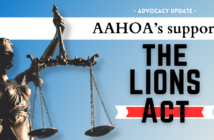President Joe Biden has put pen to paper at a rapid pace since entering the White House in January. In his first two weeks, Biden signed more executive orders, proclamations, memorandums, and letters than most presidents did in their first month. This flurry of executive actions stems from the administration’s agenda to roll back Trump-era policies and deliver quick fulfillments on policies espoused on the campaign trail. The sheer number of actions is notable, yet commonplace reversals for a fledgling administration. Seeking to get ahead on issues such as immigration, climate change, as well as health care, vaccines, and the economic response to the ongoing pandemic, Biden has laid the groundwork for his administration and the Democratic controlled Congress to pursue an ambitious policy agenda.
A LOOK AT THE SBA AND SMALL BUSINESS RELIEF
Economic relief for small businesses, distributed through the Small Business Administration’s (SBA) various loan programs, is a centerpiece of the Biden-Harris administration economic recovery plan. Additionally, Biden has signaled a push for extending paid leave and unemployment compensation while buffing workplace safety guidelines. On January 29, President Biden signed an executive order directing the Occupational Safety and Health Administration (OSHA) to release updated guidance on COVID-19 workplace prevention programs, which are due to roll out by March 15. In essence, Biden’s relief plan for small businesses does not revolutionize the current programs and safety standards the hotelier is already accustomed to. AAHOA will update its members on the new workplace guidance when it is published.
The recent funding for Second Draw Loans in the Paycheck Protection Program (PPP) have been a valuable resource for small businesses. Economic relief for small businesses has been a bipartisan policy throughout the pandemic and will likely remain a piece of common ground for lawmakers in Washington, D.C., to rally around. Funding for key SBA loan programs was refreshed in the stimulus package passed in the final days of the 116th Congress, fulfilling several key priorities for hoteliers and the hospitality industry.
THE LABOR LANDSCAPE
Under the Biden administration, labor and employment policies will primarily flow through the U.S. Department of Labor and the National Labor Relations Board, currently consisting of five seats with three Republicans, one Democrat, and one vacancy. The Biden administration has signaled strong support for union organization and collective bargaining arrangements. Rulings on the joint employment standard, very relevant to franchisees, under the National Labor Relations Acts will likely be revisited.
Although Democrats control Congress and the White House, their ability to pass legislation without working with members of the Republican party remains limited as long as the filibuster remains in the narrowly controlled Senate. Labor law and employment policies are rising to the forefront of the Biden agenda, and we can expect some roll backs of policies passed under the Trump administration.




